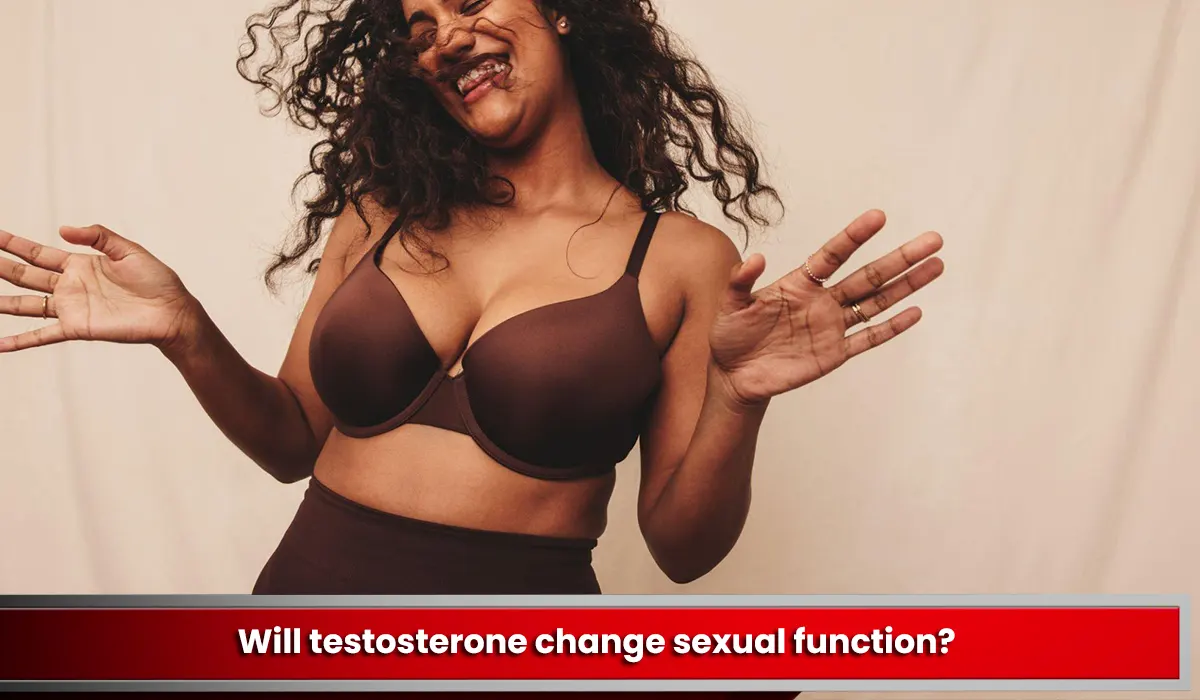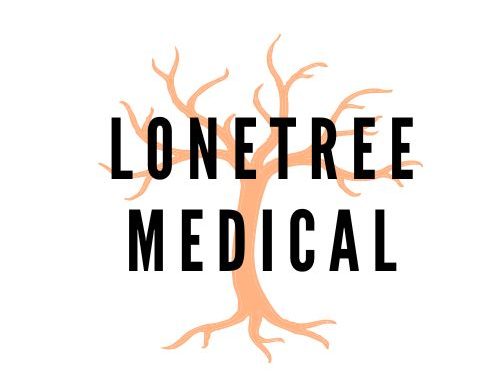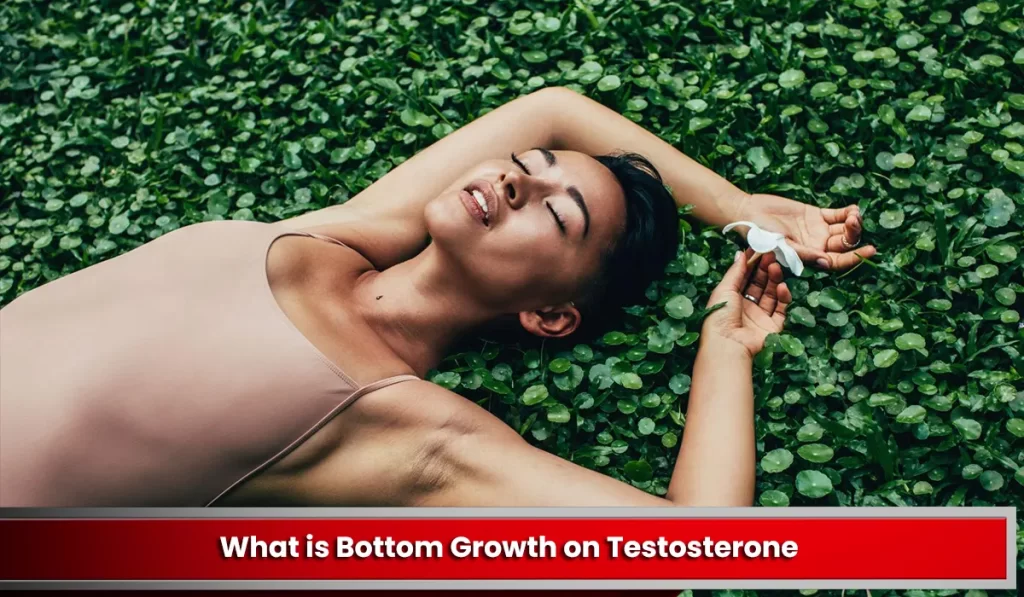If you’re new to gender-affirming hormone therapy (GAHT), you might be wondering what kind of bodily changes to expect. People who use testosterone as part of their gender transition go through a variety of new and thrilling experiences. Some of these changes are obvious, such as a lower voice and new facial hair. Others, such as emotional shifts associated with T, may be more subtle. Everyone’s adjustment is different, however most people notice substantial differences within their first year on T. By the third year on a full dose, the “masculinizing” effects of testosterone should be apparent.
Your doctor can help you understand what to expect in terms of bottom growth when you start testosterone. This blog is for transgender, nonbinary, and other testosterone users who want to know how their gender-affirming hormone therapy affects bottom growth.
Bottom growth is one of the most profound—but little-discussed—changes that people experience on T. Sexual and genital changes are common in the first year of testosterone. This can include increased sensitivity, developing genitals, orgasmic modifications, and other changes. These differences vary from individual to person. Here are some of the most common questions and concerns that people have when they first start taking testosterone.
How big will my clitoris get when I take testosterone?
The extension of your clitoris, labia, and/or vulva is referred to as bottom growth. (Everyone uses different terminology for this part of their body; some people feel that specific terms are gendered because they are associated with “feminine” or “female” body parts; we are using these clinical terms in this article because they are easily understandable, widely used, and easily accessible.)
In some circumstances, testosterone causes significant clitoral growth. The clitoris clen cycle is capable of growing in length and circumference. The average person grows 1-4 cm every year. Each person’s body’s response to testosterone determines the amount of growth they experience. Some people, for example, see an inch or more of growth, though anything greater is exceptional.
When taking T, the labia and vulva may also grow. Some people see their labia (the two pairs of lips on the outside of the vagina) become thicker, longer, or darker. These changes are normal.
Bottom development will also highlight your clitoral erections. Your erectile tissue grows when aroused or stimulated, just as it did before you started using T. As your bottom grows, your erect tissue will become more noticeable.
Will testosterone change sexual function?

Gender-affirming hormone therapy (GAHT) affects every system in the body. Testosterone affects the entire body, from your skin and hair to your emotions. This includes both your sexual function and your genitals. Changes in your sexual drive are common on T. You may get a stronger desire to masturbate or become more interested in sex. Your fantasies, like your attraction to other people, can change.
Many people find that when their bodies mature to fit their gender identity, they become happier—and more attractive! Self-acceptance, according to DK Green, a trans guy and psychologist, opens up new possibilities in the bedroom. “Then you can start talking about what you like and what you want,” he says. What do you fantasize about while you masturbate? What exactly are you planning to create? ”
At the same time, testosterone can cause vaginal dryness. This medication thins the skin that lines the vagina and may affect the pH of your vagina as well as your susceptibility to infections. It may take longer than usual to feel “turned on” and lubricated. If you participate in penetrative intercourse, condoms, gloves, or other barriers will help protect you from the increased risk of STI transmission. You can make sex more comfortable by using a thicker lubricant or a silicone lubricant that lasts longer.
What does bottom growth feel like?
Long before they notice any outward changes, most testosterone users discover bottom growth by how it feels. The clitoris is a delicate four-inch-long structure with approximately 8,000 nerve endings. The clitoris is an erectile tissue-based extension of the vulva. The visible clitoris component may resemble a small bud or button, while the remainder of the anatomy is hidden within the body.
Because testosterone affects several parts of your body, you may discover that your clitoris has grown larger, stiffer, or more receptive. Your clitoris may seem deep red or pink due to increased blood flow to your sex organs. Your labia may also seem or feel larger. While your clitoris grows, your clitoral hood may increase or remain constant, making the external bud more visible. Some people go from wearing briefs to boxers to cope with this sensory adjustment.
Testosterone may also have an effect on your orgasmic experience. Instead of the slow, growing rush of an orgasm, you may experience a more rapid and powerful sensation. Your capacity for several orgasms may vary, or you may become too sensitive and reject direct touch. Zaps and tingling feelings are signals of development and will fade when your bottom growth stops. Hypersensitivity is more common in the first 3-6 months of testosterone therapy and usually subsides after a while.
What if I don’t want bottom growth as part of my gender transition?

Some people are anxious that their gender dysphoria will be exacerbated by limited growth. Others are concerned about the likelihood of increased libido. Some people have been sexually abused and are terrified about having their genitals changed. Communicate your transition goals with your clinician if bottom growth is possibly triggering for you. You are under no obligation to stop using gender-affirming hormone therapy. While not everyone need or craves testosterone, those who do understand that T is a life-saving medication.
Everyone has the right to feel secure, at ease, and validated. Gender euphoria, or the strong pleasure people experience when their gender expression corresponds to their gender identity, can be triggered by testosterone. Your healthcare team can give you personalized dose guidance or recommendations to help you have the best GAHT experience possible.
Every drug, including testosterone, has side effects. Some of these outcomes might be preferable to others. Some people, for example, anticipate having more “masculine” face traits as T progressively changes the fat and tissue in their bodies. Others love their softer tones or their renewed zeal. At the same time, the same person who desires and need T may dislike facial hair.
Unfortunately, you cannot choose which of T’s negative affects you will experience. Bottom growth is accounted for. Hormones work gradually, not instantly. A higher dose of T will enhance your hormone levels and produce more obvious results. If you are unsure about how testosterone may affect your body, or if you are concerned that the medication will create unpleasant side effects, please contact our care team for information and assistance.
How come people don’t talk about bottom growth?
Because our culture stigmatizes sex and discourages people from discussing pleasure, topics like as bottom growth, masturbation, transgender sex, T4T, and clitoral stimulation are deemed taboo. Many of us only see our trans bodies represented in porn since transsexuality is not part of the mainstream sex discussion. However, this should not be the case!
Because our culture stigmatizes sex and discourages people from discussing pleasure, topics like as bottom growth, masturbation, transgender sex, T4T, and clitoral stimulation are deemed taboo. Many of us only see our trans bodies represented in porn since transsexuality is not part of the mainstream sex discussion. However, this should not be the case!
Having an open and honest conversation about sex and bottom growth will help you receive answers to your questions. Your Plume clinician is willing to engage in these talks and is accessible to speak with you about any changes you are experiencing. You can still obtain treatment with your bottom growth if you don’t have access to a clinician. The transgender community is a source of information.
Many of us are transgender people who have gone through similar transitions to you. Your gender journey is unique, and you deserve to feel powerful while you seek serenity and contentment. As your body changes, you have a great opportunity to learn more about yourself, your mind, and your heart.

